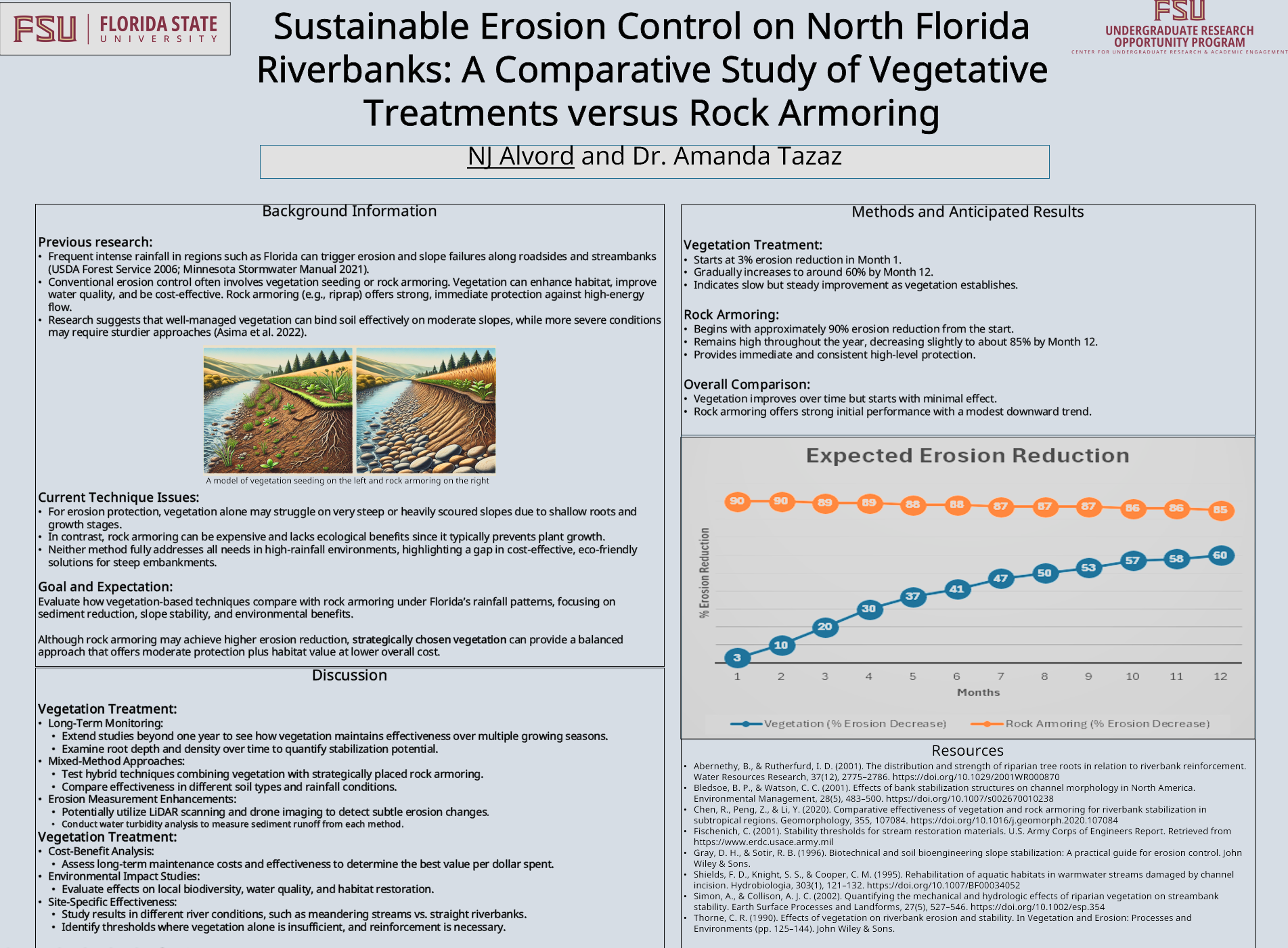Research Symposium
25th annual Undergraduate Research Symposium, April 1, 2025
Nathaniel Alvord Poster Session 4: 3:00 pm - 4:00 pm/ Poster #160

BIO
I am an Environmental Science student with a strong interest in riverbank sustainability, water quality, and ecological restoration. My research focuses on comparing vegetative treatments and rock armoring for erosion control along North Florida riverbanks. I am passionate about developing sustainable solutions to mitigate environmental degradation and plan to pursue a career in conservation and ecosystem management. Through my studies, I aim to contribute to the preservation of natural waterways and promote environmentally responsible land-use practices.
Sustainable Erosion Control on North Florida Riverbanks: A Comparative Study of Vegetative Treatments versus Rock Armoring
Authors: Nathaniel Alvord, Dr. Amanda TazazStudent Major: Environmental Science
Mentor: Dr. Amanda Tazaz
Mentor's Department: LSI (Learning Systems Institute) Mentor's College: Florida State University Co-Presenters:
Abstract
Shallow slope failures and soil erosion along roadsides and streambanks are significant challenges in regions with intense rainfall, such as Florida. Traditional erosion control methods—often relying on basic vegetation seeding—may not provide sufficient long-term stability on specifically steep slopes. However, vegetation still releases other environmental benefits for the river and habitat and functions on shallow slopes effectively. In our study, we evaluated the strength of general vegetative treatments for slope stabilization and sediment reduction and compared these to rock armoring techniques. Experimental plots on a roadside slope in a North Florida river will be monitored over a year period using runoff collection, erosion pin measurements, and assessments of root development. The predicted results show that well-established vegetation, with its extensive root networks, reduces sediment yield and reinforces the soil at a moderate level, decreasing erosion by 70%. In contrast, while rock armoring is highly effective at protecting against erosion in high-energy environments, decreasing erosion by about 90%, it comes with higher installation and maintenance costs, a less attractive appearance, and no additional benefits such as habitat creation. Theoretically, this highlights the potential of sustainable, vegetation-based erosion control as a cost-effective alternative to traditional rock-based methods for maintaining stable, resilient river banks.
Keywords: Environment, erosion, river, conservation

